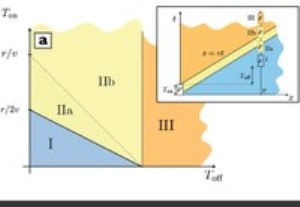The concept of quantum entanglement, which is defined as the correlation between two quantum particles in space, has got more interesting owing to the research carried out at the Institute of Quantum Computing by postdoctoral fellow Eduardo Martin-Martinez.
 Different space-time regions employed in the experiment
Different space-time regions employed in the experiment
Typically, quantum entanglement exists between particles only across space. However, Martin-Martinez and his team have demonstrated that quantum correlation is applicable across time. That is, though two quantum particles existing at different points in time cannot interact with one another, a correlation between the two is established owing to their interaction with the space which is referred as the quantum vacuum.
According to Martin-Martinez, the most surprising aspect of the time-based entanglement is that correlation can exist even if the quantum bits do not exist at the same point in time. Martin-Martinez with his three colleagues Borja Peropadre, Marco del Rey and Carlos Sabin from the Instituto de Fisica Fundamental employed superconducting circuits to substantiate the concept of quantum correlations across time and space which has been understood only in theory previously.
In order to accomplish a past-future entanglement, the team derived quantum correlations from two superconducting quantum bits. According to the researchers, the quantum bits need not even be aware of each other’s existence to form the entanglement. Martin-Martinez envisages vacuum correlations to give rise to new types of quantum memories in the future.